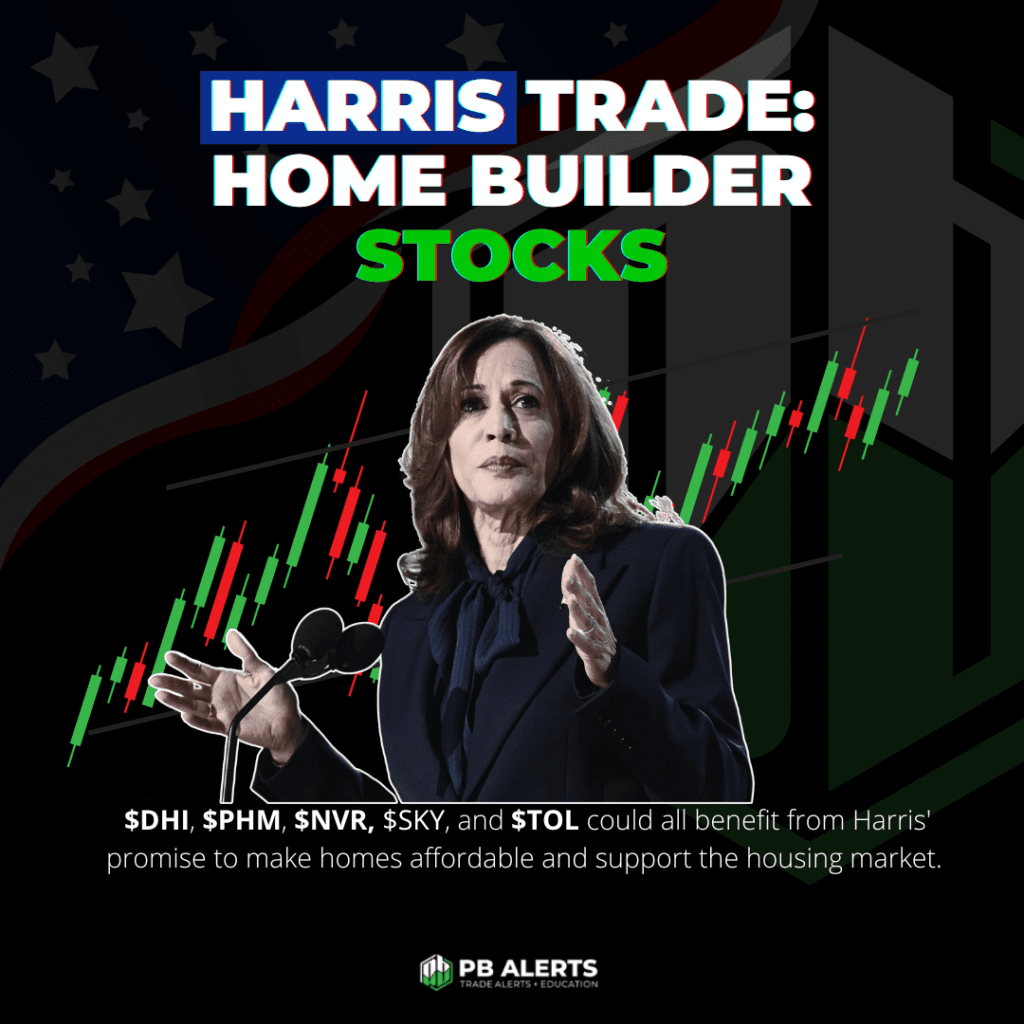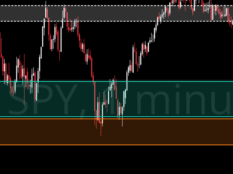Trump Trade: Financial Stocks
Financial stocks could get a major boost under a Republican presidency, with expectations of looser regulations and more mergers and acquisitions. According to Fitch Ratings, a 2021 Biden-era order added extra scrutiny to mergers, leading to longer review times and even killing some deals as market conditions changed. Kurt Reiman from UBS Global Wealth Management suggests that under a Trump presidency—or if Republicans control Congress and the White House—financial companies could see reduced costs, more freedom to return capital to shareholders, and fewer roadblocks to industry consolidation.
- JPMorgan Chase & Co. (JPM) - A leading global bank with a diversified range of financial services, including investment banking, asset management, and consumer banking.
- Bank of America Corporation (BAC) - One of the largest U.S. banks, providing consumer and business banking, wealth management, and investment services.
- Wells Fargo & Co. (WFC) - Known for its extensive consumer banking operations and recent restructuring efforts to boost efficiency and profitability.
- Goldman Sachs Group Inc. (GS) - A prominent investment bank offering asset management, investment banking, and securities services.
- Morgan Stanley (MS) - Known for wealth management and institutional securities, Morgan Stanley is a strong player in both investment and consumer finance.
- Citigroup Inc. (C) - A global bank with a broad international footprint, offering services in retail and institutional banking.
- Berkshire Hathaway Inc. (BRK.B) - Warren Buffett’s conglomerate, heavily invested in the financial sector with holdings in insurance, banking, and diversified financial services.
- American Express Company (AXP) - A leader in credit card services and financial products, primarily focused on higher-income consumers and business clients.
- Charles Schwab Corporation (SCHW) - A major brokerage firm, well-regarded for its wealth management and investment services.
- BlackRock, Inc. (BLK) - The world’s largest asset manager, providing a range of investment management, risk management, and advisory services.
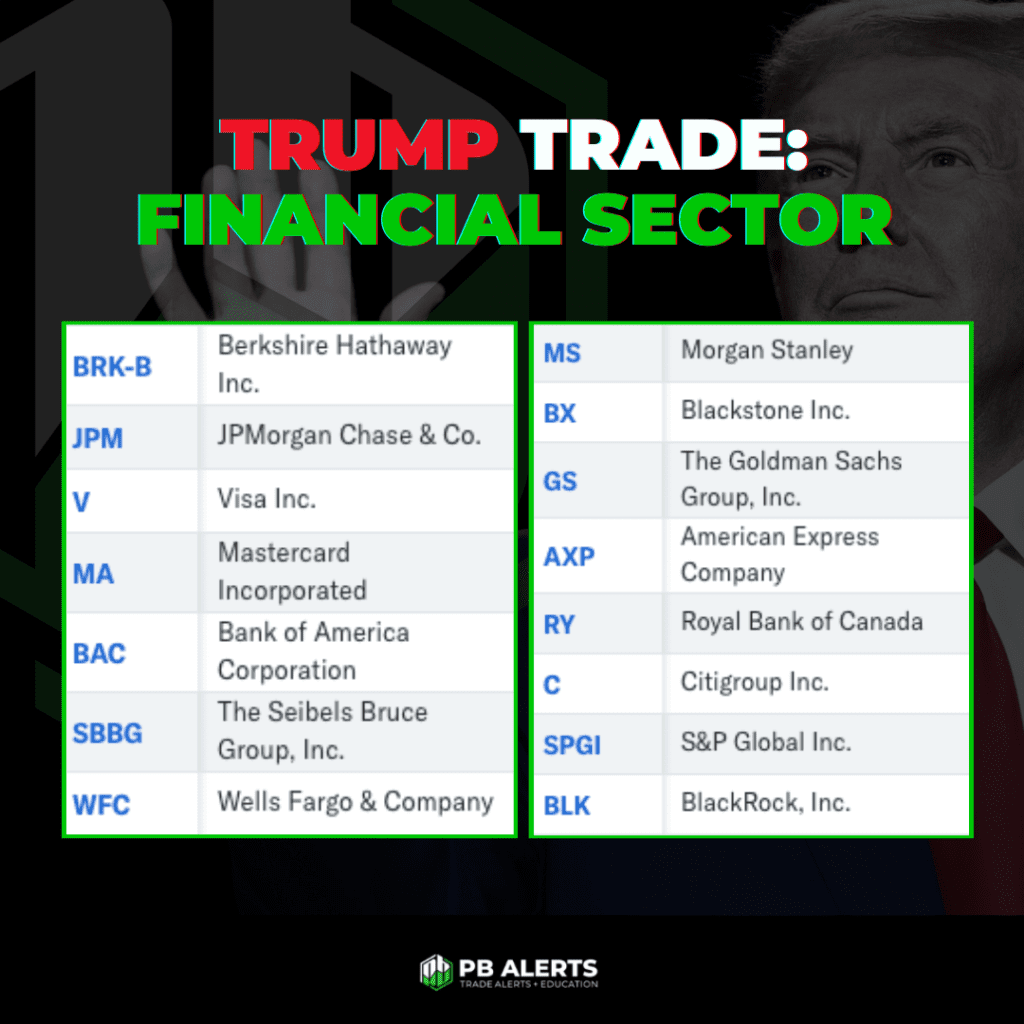
But in a Democratic sweep, things could be tougher for the sector. Bank of America’s Jason Kupferberg warns that the payments industry, in particular, could be hit hard. A Democratic-led government could ramp up lawsuits, like the DOJ’s current case against Visa, and potentially pass laws that reduce Visa ($V) and Mastercard’s ($MA) market edge.
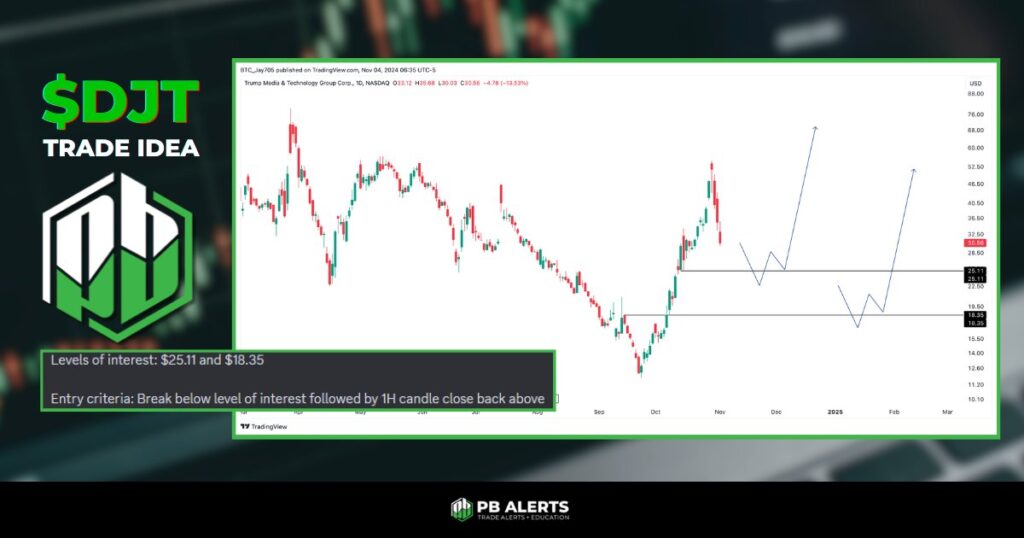
For traders, the takeaway is clear: the 2024 election could set the stage for big shifts in financial stocks. Republican policies might clear the way for growth, while Democratic control could bring more legal challenges and stricter regulations, especially in payments.
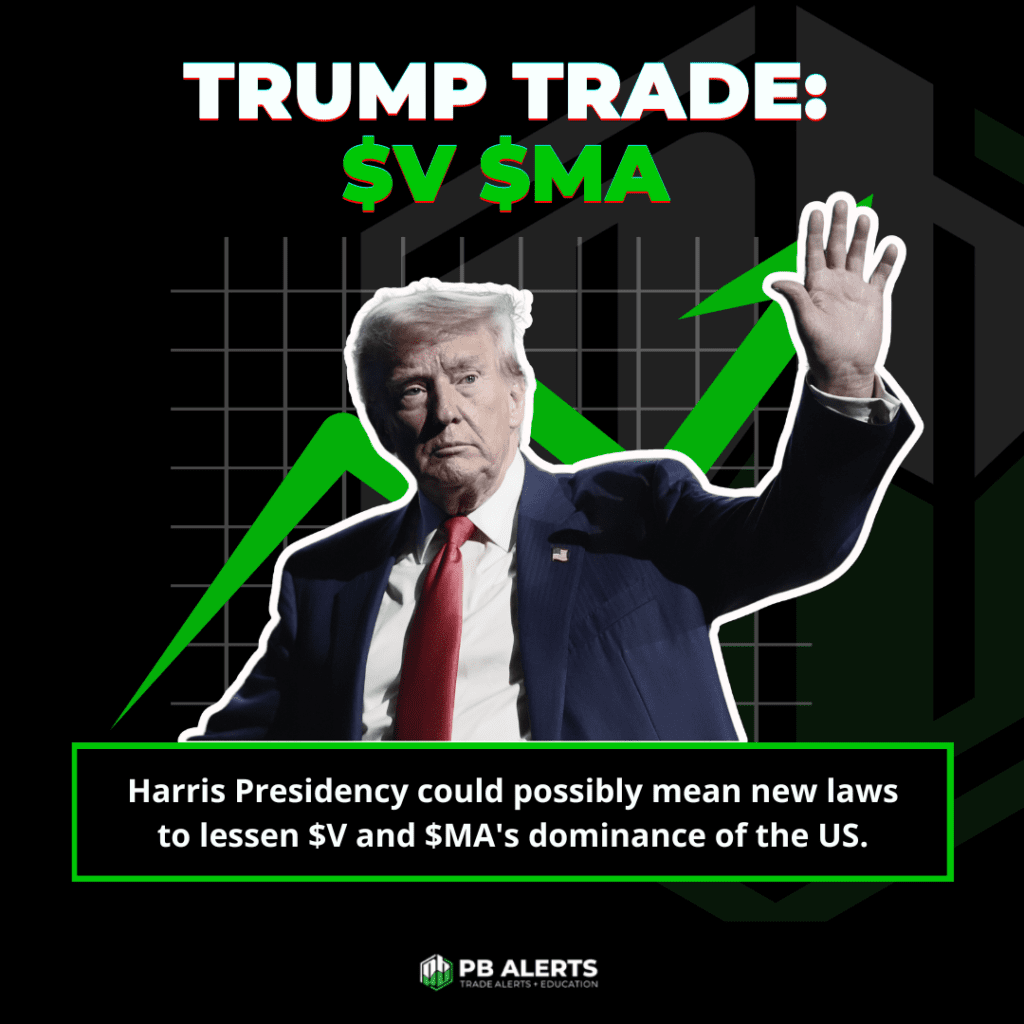
Harris Trade: Electric Vehicles
This election could be a game-changer for the electric vehicle (EV) industry, and not just because of Trump’s ties with Tesla CEO Elon Musk. Trump has promised to roll back Biden’s EV policies on “day one,” a move that could reshape the future of the industry. Karl Brauer, an analyst at iSeeCars, says the election could be more impactful on the auto industry than any previous one. RBC’s Tom Narayan also notes that Trump’s unpredictability in his first term left automakers feeling uncertain about future policies. In contrast, Harris has backed the current push to expand EV access, supporting the Biden-era tax credits that offer $7,500 for new EVs and $4,000 for used ones—a key factor in making EVs more affordable, according to Guggenheim’s Ron Jewsikow. Wedbush analyst Dan Ives believes a Harris administration would benefit major automakers like GM, Ford, Stellantis, and the broader EV sector, including Tesla.
- Tesla Inc. (TSLA) - The industry leader in EV production, Tesla also has strong market positions in battery technology, energy storage, and autonomous driving software.
- BYD Company Limited (BYDDY) - A Chinese EV and battery manufacturer backed by Warren Buffett, BYD is a key competitor in the global EV market, with a diverse lineup and strong presence in China.
- Rivian Automotive, Inc. (RIVN) - Known for its electric trucks and SUVs, Rivian has backing from major investors like Amazon and Ford and is focused on expanding its lineup and production capacity.
- Lucid Group, Inc. (LCID) - Lucid specializes in luxury EVs with an emphasis on range and performance. Its high-end vehicles are designed to compete with Tesla in the premium segment.
- NIO Inc. (NIO) - Often called the "Tesla of China," NIO focuses on high-tech, premium EVs and offers battery-as-a-service (BaaS), which allows customers to lease batteries and swap them as needed.
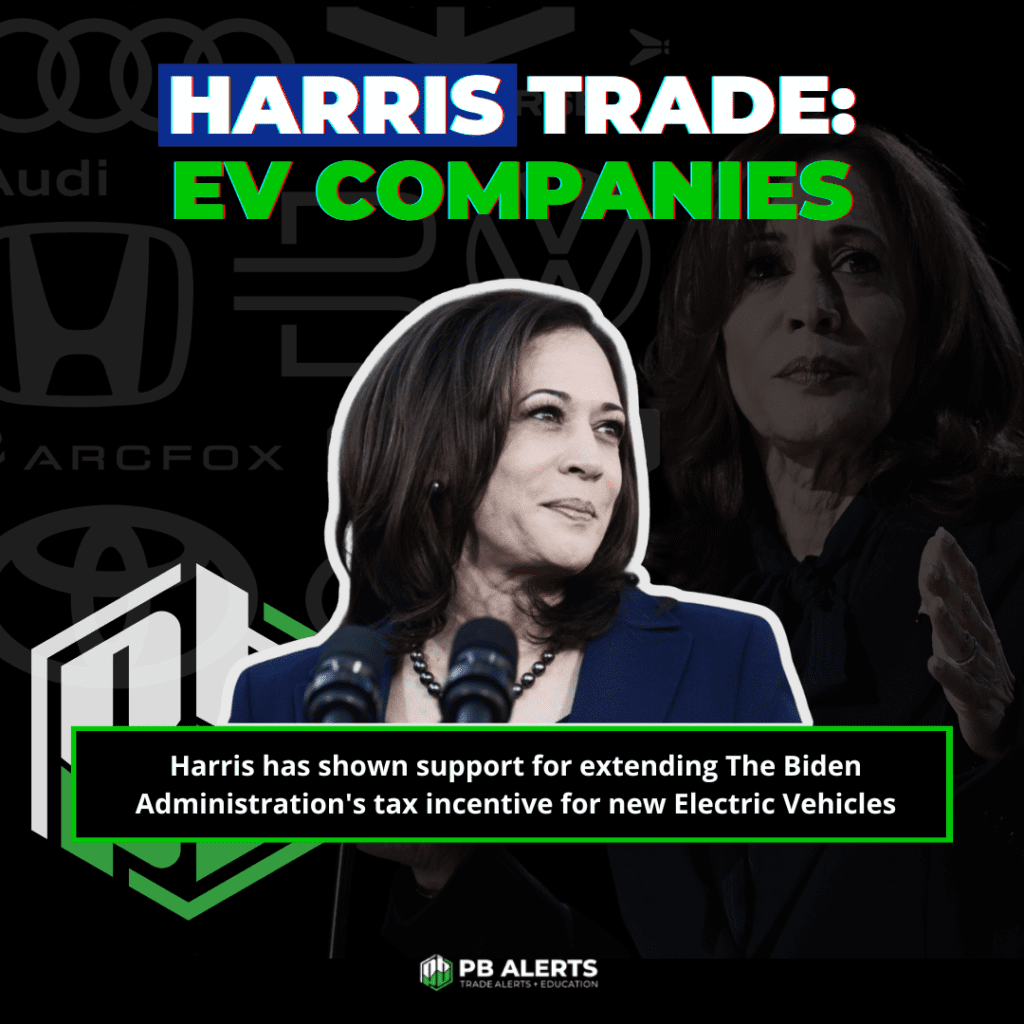
Trump Trade: Gold
Gold prices are soaring, closing last week at a record $2,734.44 an ounce—up 34% for the year. Wealth Alliance president Eric Diton sees even more room for growth, largely because the U.S. lacks a plan to tackle its $35 trillion debt. With no real spending cuts on the table from either Trump or Harris, gold’s appeal as a hedge against inflation and currency devaluation strengthens. A recent analysis from the Committee for a Responsible Federal Budget estimates Trump’s policies could add $7.5 trillion to the debt over the next decade, compared to $3.5 trillion under Harris. Higher government spending could continue to push gold prices up, as investors seek stability against a weakening dollar and rising debt.

Harris Trade: Home Builder Stocks
Harris’s focus on housing affordability and her plan to add three million new homes could be a strong driver for homebuilders, says Oppenheimer analyst Tyler Batory. Batory’s team highlights D.R. Horton (DHI) as a top pick, citing its emphasis on entry-level homes, which positions it well to benefit from Harris’s proposals. Despite recent challenges—such as affordability issues and election-related uncertainty, which D.R. Horton CEO Paul Romanowski noted have caused some buyers to hesitate—the company’s lower average selling price and scalable production make it well-suited to respond to an increase in demand if a tax credit for homebuyers is introduced. As the SPDR S&P Homebuilders ETF saw a 1.6% drop for the week, extending its monthly loss to 8%, D.R. Horton remains a potential bright spot in the sector.
- D.R. Horton, Inc. (DHI) – The largest homebuilder in the U.S. by volume, D.R. Horton focuses on entry-level and affordable housing, positioning it well for markets with strong demand for new homes.
- Lennar Corporation (LEN) – A major player in residential construction, Lennar builds single-family homes and townhomes across multiple states, with a focus on both entry-level and move-up buyers.
- PulteGroup, Inc. (PHM) – PulteGroup operates in a variety of segments, from entry-level to luxury homes, and has a strong national presence. The company benefits from its strategic land holdings and efficient construction processes.
- NVR, Inc. (NVR) – Known for its asset-light model, NVR builds homes primarily in the Eastern U.S. and has a high return on equity. It also has a strong balance sheet, with limited land ownership, reducing its exposure to market downturns.
- Toll Brothers, Inc. (TOL) – Unlike others on this list, Toll Brothers focuses on luxury and high-end homes, particularly in urban and suburban markets. It benefits from demand in affluent areas and has diversified into rental and mixed-use properties.
